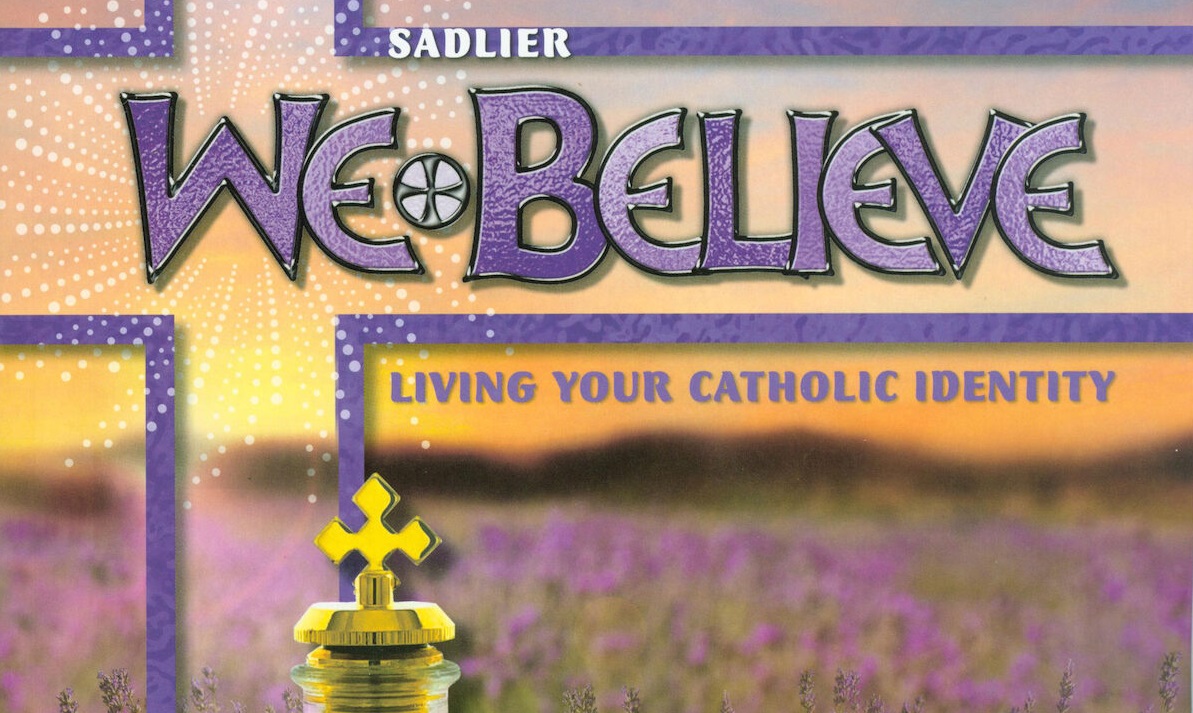8th Grade
Lesson 2: We Make Moral Choices
Key points:
-
Human freedom is a gift from God; it allows us to choose actions.
-
We are morally responsible for our choices — good or bad.
-
Choices align us more closely with God when we act in virtue; when we choose sin, we alienate ourselves from God and others.
-
Forming a well-informed conscience is essential: through Scripture, Church teaching, the guidance of the Holy Spirit, and moral reflection.
-
We can ask God’s grace to help us choose what is good.
Lesson 3: We Follow God’s Law
Key points:
-
God’s moral law is revealed through Scripture, the teachings of the Church, and natural law (the moral order written in our hearts).
-
The Ten Commandments (and other precepts) express God’s will and help direct our actions.
-
The law is a guide, not a burden; it protects us and helps us grow in holiness.
-
Jesus fulfills the law and often deepens its meaning (e.g. in the Sermon on the Mount).
-
Obedience to God’s law is an act of love — loving God and neighbor.
Lesson 4: We Love God and Others
Key points:
-
Loving God is primary — it orients our whole life.
-
Loving others is inseparable from loving God: when we love others, we serve Christ.
-
Christian love (charity) means self-sacrifice, service, forgiveness, compassion.
-
The virtues (especially the theological virtue of charity) help us live that love.
-
We are called to see the face of Christ in every person, especially those in need or marginalized.
7th Grade
Lesson 2: The Truth Revealed
Key points:
-
Divine Revelation: God makes Himself known to us through both Scripture and Tradition.
-
Scripture is the written record of God’s self-disclosure and relationship with us.
-
Tradition is the living handing on of the truths Christ taught, through the Church.
-
The Church guards and teaches this truth throughout all ages.
- The Holy Spirit is active in guiding the Church and helping us understand divine revelation.
-
Because of revelation, we can trust that God is not remote or hidden — He invites us into relationship with Him.
Lesson 3: The Blessed Trinity
Key points:
-
The Blessed Trinity is the doctrine that there is one God in three Persons: Father, Son, and Holy Spirit.
-
Each Person of the Trinity is fully God, yet there is only one God.
-
The Trinity is a central mystery of the Christian faith and not fully comprehensible by human reason.
-
We encounter the Trinity in our lives:
-
God the Father as Creator and source of all life
-
Jesus the Son, who reveals God and redeems us
-
The Holy Spirit, who sanctifies, guides, and dwells within us
-
-
The Sign of the Cross is a prayer gesture invoking the Trinity.
-
We are called to live in relationship, mirroring how the Persons of the Trinity exist in relationship (unity, love, communion).
Lesson 4: God Our Loving Father
Key points:
-
God is our loving Father — not distant, but caring, protective, and intimately involved in our lives.
-
As Father, God created everything freely and out of love; He continues to sustain creation.
-
God’s fatherhood also means He cares for our needs, listens to us, forgives, and guides us.
-
Through Jesus, we learn more deeply about God’s fatherly love (e.g. how Jesus prayed to the Father)
-
We are called to respond by trusting God, obeying Him, and relating to Him as children.
-
God’s promises (covenants) throughout scripture show His faithful love to His people.
6th Grade
Lesson 2: God’s Work of Creation
Key points:
-
The creation stories in Genesis teach religious truths, not scientific facts.
-
God created everything out of love and called it “good.”
-
Humans have a special role as caretakers of the earth and stewards of God’s creation.
-
The Sabbath reminds us to rest and praise God for His work.
Lesson 3: The First People Turn from God
Key points:
-
Original Sin is the first sin committed by humans when they turned away from God.
-
Sin damages our relationship with God, with others, and with creation.
-
Despite human disobedience, God’s love never ends.
-
We can seek forgiveness through prayer, repentance, and the Sacrament of Reconciliation.
Lesson 4: God Promises to Save His People
Key points:
-
God’s covenant is a promise of love and faithfulness.
-
The stories of Noah, Abraham, and others show God’s continuing care for humanity.
-
The promise of a Redeemer (Jesus Christ) begins to unfold in these early stories.
-
Jesus fulfills God’s plan of salvation through His life, death, and Resurrection.

